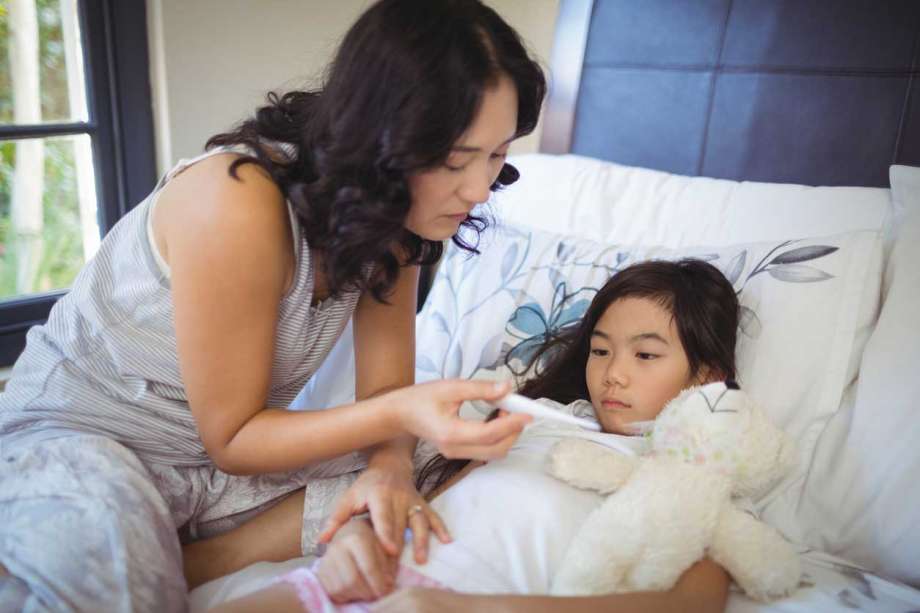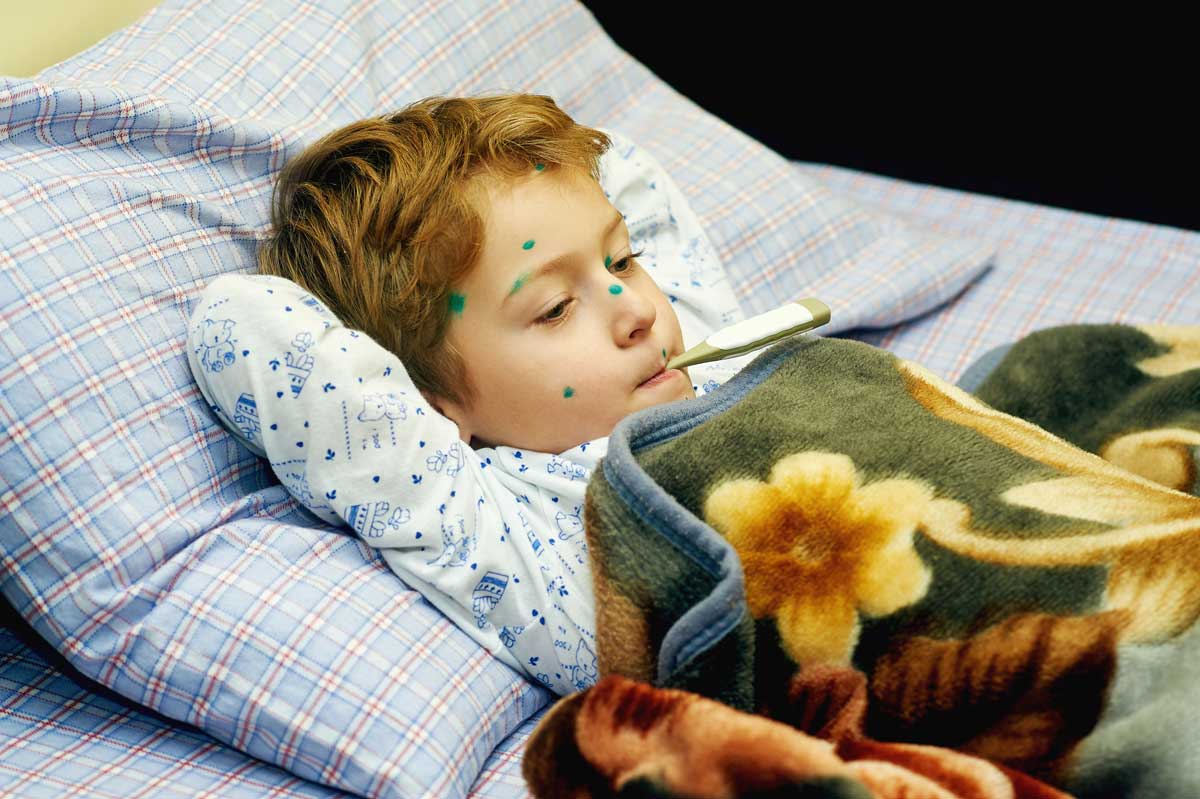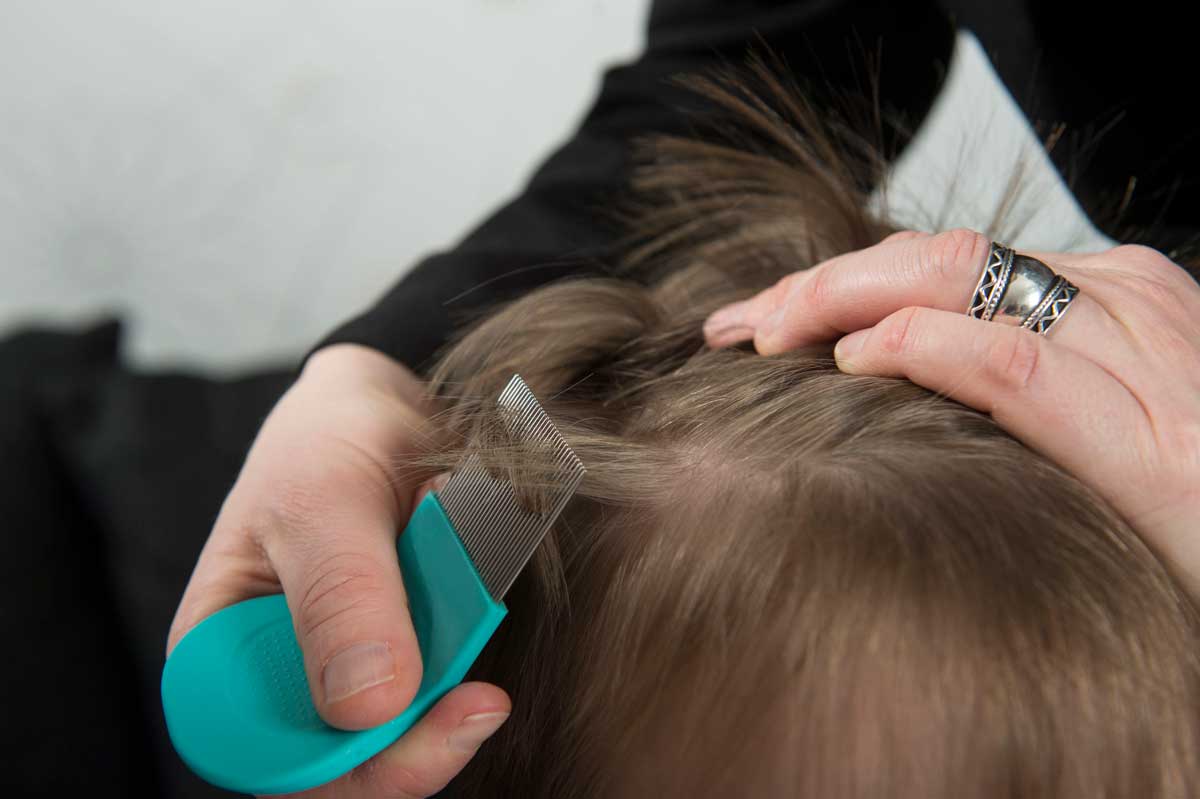What to Do When Your Child Is Sick

You're thinking of the big meeting you have today when your child says, "I don't feel well!" As parents, we dread hearing these words. But when we do hear them, do you know what to do? "Are you sure?" you ask, as you put your hand on his forehead. His head does feel a bit warm. But is he really feverish enough to keep home from school? As a nurse practitioner working in a school setting, I've seen many parents struggle with these issues. While having a sick child is never easy, these guidelines might help you figure out what to do when your child says, "I don't feel so good."
When your kids should stay home
Although it may seem obvious, children should not go to school when they're contagious to others or when they're too sick to learn.
More: Fever and Sick Days
Most schools will send a child home if they think a child is contagious with:
- Fever
- Chicken pox
- Strep throat
- Vomiting and/or diarrhea
- Skin infections
- Eye infections
- Parasitic infections such as lice or scabies
Planning ahead
So, how do you balance work and family responsibilities when your kids need to stay home? In today's busy work-a-day world this isn't easy, but thinking about what you might do in advance will make that day go much smoother. To prepare, consider your work situation and discuss the possibilities with your employer — before your child gets sick. Think about the following:
- Bring your work home for a day or two
- Ask your employer about "wiring" your home so that it will be easier to get work done
- "Attend meetings" through conference calls
- Take time off as sick time, vacation time, or time without pay
Maybe you know someone who can help
What about other childcare providers? Do you know anyone who is willing to care for a sick child and has the expertise to do so? Here are some things to think about:
- Who might care for your child when she's sick?
- Would that person come to your house?
- What supplies and instructions do you need to prepare?
- Can the person caring for your child reach you if your child's condition gets worse during the day?
Preventing or minimizing illnesses — it can be done
One way to lessen the number of days your child needs to stay home is to prevent the illness in the first place. Childhood immunizations can prevent many diseases, such as measles, mumps, and chicken pox. Although this may seem simple, many illnesses can be prevented through proper hygiene.
Some reminders for your children
Childhood illnesses, like colds, are spread easily when children are in close contact in the school setting. Many of these illnesses can be prevented through something as simple as washing hands with soap and water. Here are some reminders for your children:
- Not to share food
- Not to share drinks
- Not to share clothing
- To throw away used tissues
- To wash their hands frequently using soap
Some common stay-at-home illnesses
Here are some common childhood illnesses to watch out for. If you think your child has one of these illnesses, call your child's doctor or health care provider and don't send your kid to school!
More: When to Keep a Child at Home
Chicken pox

Chicken pox is becoming less common because most babies receive the varicella vaccine at age 1, but it can still occur in children (and adults) who haven't been immunized. The first symptoms are fever, runny nose, cough, headache, and tiredness. These symptoms are followed by a rash which continues to erupt for three to four days. Children with chicken pox are contagious for seven to ten days and need to stay home.
Strep throat
Strep throat is a sore throat caused by a particular bacteria that can be identified with a throat culture. If you think your child has strep throat, he or she should see a health care provider. Once diagnosed with strep throat, antibiotics are prescribed to prevent complications. A child is contagious and should stay home from school for 24 hours after starting the antibiotics.
Ear and sinus infections
Ear and sinus infections are bacterial complications of a cold virus. These infections are also treated with antibiotics. A child with one of these problems can return to school when his or her temperature is normal and he or she feels well enough to learn.
Skin infections
Some skin infections are contagious. Impetigo is a bacterial skin infection characterized by a honey-colored, crusted rash. A health care provider will prescribe antibiotic medication, and the child should stay home for 24 hours after starting treatment. Ringworm is a fungal infection that is treated with topical creams. Ringworm is contagious as long as the rash is there, but children with this condition may return to school if the area can be covered.
Other conditions

Lice and scabies are infestations that are highly contagious and pass around classrooms like wildfire. To treat these infestations, it is necessary to follow a careprovider's medication and environmental directions closely. Children should not return to school until they have been treated. It is important to encourage your child not to share clothes and hats because this helps these infections spread. Other rashes, liked those caused by contact with irritating substances, do not require staying home from school.
Follow us on Pinterest for tips on keeping your kids safe and healthy:

